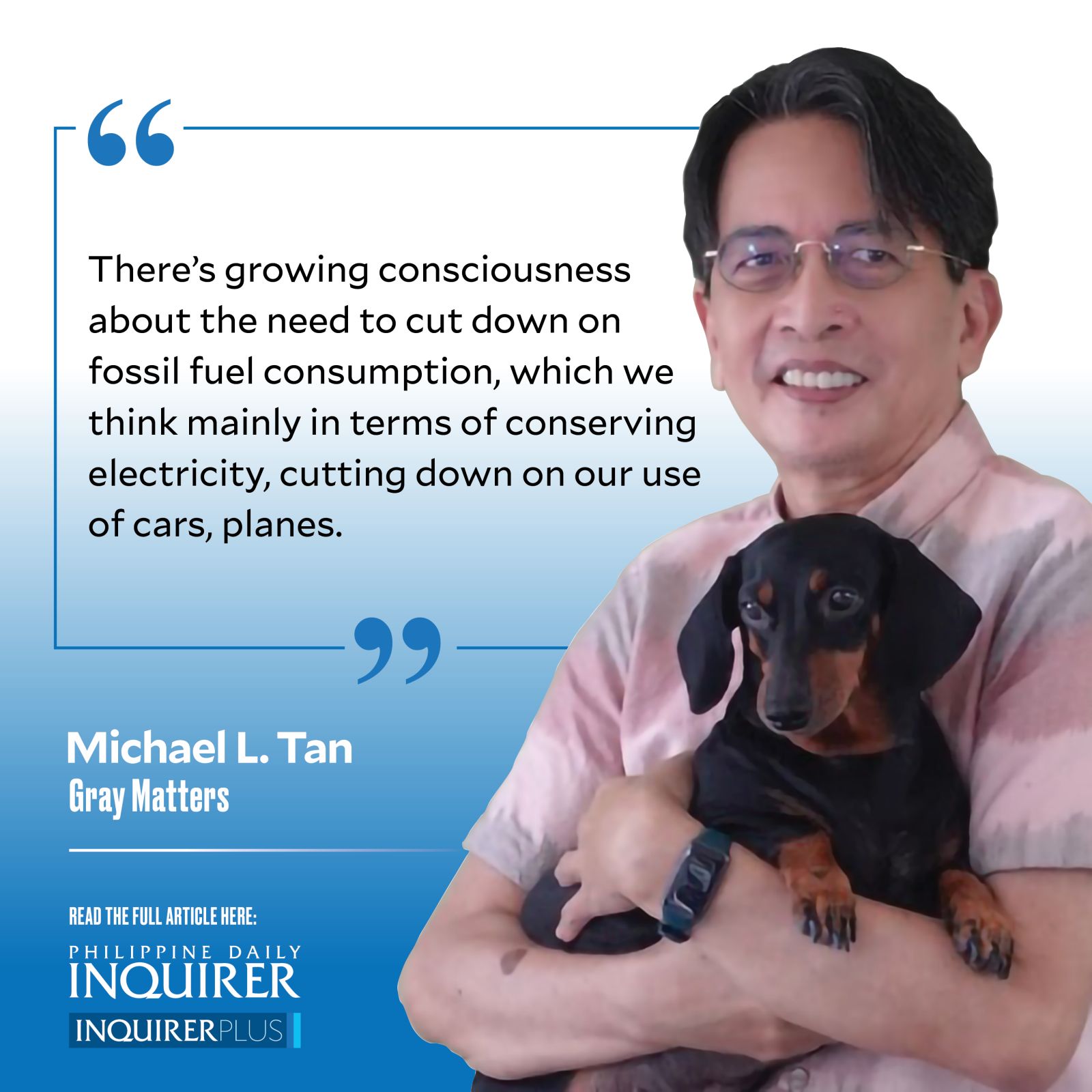A world without fossil fuels?

I worry that as the world wakes up to the climate emergency, also known as climate change, we will need massive information and education on the complex issues, including the many technical terms, and abbreviations that have emerged.
Ongoing right now is the 28th COP, an abbreviation that means Conference of Parties but not fun parties. “Parties” refers to governments that ratified a UN Framework Convention on Climate Change (UNFCCC) pledging to “avoid dangerous climate change.”
This year’s COP seems to be taking matters seriously, at least in terms of the food being served. Visit the COP28 website and click on food and beverages, where the organizers proudly declare that two-thirds of the meals being served are vegan and vegetarian and 50 percent of the food served was prepared within “sustainable limits for carbon and water,” minimizing waste and packaging.
That pretty much reflects where the world is today as it looks for ways to deal with the climate emergency. We know the environment is in trouble, and has something to do with the planet heating up and that is happening because of greenhouse gas emissions, mainly from fossil fuels.
Yet, I’ve had college students who still don’t know what fossil fuels are, or they know what fossil fuels are but don’t know why they’re called that. I’m not sure the term is being explained in grade school science, which should be required.
To be sure we’re all on the same page, fossil fuels are formed from dead plants and animals that are broken down by natural processes to produce coal, petroleum, and natural gas, which have become so much a part of our lives starting with the Industrial Revolution in the 18th century.
We burn fossil fuels directly for heat, just think of cooking. We also use fossil fuels to power engines, to generate electricity. We refine the fuels into derivatives: gasoline, kerosene propane, which we associate with transport.
There’s growing consciousness about the need to cut down on fossil fuel consumption, which we think mainly in terms of conserving electricity, cutting down on our use of cars, planes. I had a visiting French college student who told me after this trip to the Philippines he wasn’t planning on any more long-distance flying in the near future because he had left a massive carbon footprint.
Young people especially are talking about reducing their carbon footprints with all kinds of strategies, including moving to more plant-based diets because producing animal protein, beef, and pork especially, requires fossil fuels, occupies large tracts of land, and consumes huge amounts of water.
People are talking, too, about doing laundry and bathing less frequently, all activities that contribute to global warming. All these efforts are well and good but an outburst during this ongoing COP reminds us we need to do something about the elephant in the room, the big issue of issues when confronting the climate emergency.
COPs have always been theatrical and emotional but last Nov. 21, in one of the pre-conference fora, no less than Mary Robinson, chair of the Council of Elders and a former prime minister and a UN special envoy for climate change, pointed out to COP28 president Sultan Ahmed al-Jaber that the climate crisis was hurting women and children more than anyone else and this was happening because there was still no commitment to “phasing out fossil fuels.”
The Sultan was clearly enraged, insisting that there is “no science” behind the demands to phase out fossil fuels and that such a phase-out would adversely affect development and take humanity “back into caves.” His presidency of COP had been criticized because he’s also the chief executive of Adnoc, the United Arab Emirates’ state oil company.
UN Secretary General António Guterres disagreed with the Sultan’s “no science” claim, insisting that it would not be enough to reduce, or to abate, fossil fuels. A phase-out is our only hope. Climate scientists chimed in and Friederike Otto of the Imperial College London said that our current “fossil-driven high emission economies” were actually hindering sustainable development.
Some 100 members of the European community and African, Pacific, and Caribbean intercountry organizations issued a statement calling for a phase-out of “unabated” fossil fuels. For Asian governments, all we’ve had is deafening silence.
Can we dare to imagine the Philippines as a fossil fuel-free country? It’s encouraging to read that the Philippines now ranks fourth in BloombergNEF’s (BNEF) rankings of developing economies in terms of being good places for clean energy investments, even if BNEF notes, too, that we are among 57 markets worldwide that have not reached half of our renewable energy targets.
The British newspaper The Guardian’s editorial on Monday declared that countries need a nonproliferation treaty to phase out fossil fuels because they’re weapons of mass destruction. President Gustavo Petro of Columbia, a major fossil fuel producer, agreed, declaring that his country was going to endorse this fossil fuel nonproliferation treaty.
mtan@inquirer.com.ph




















